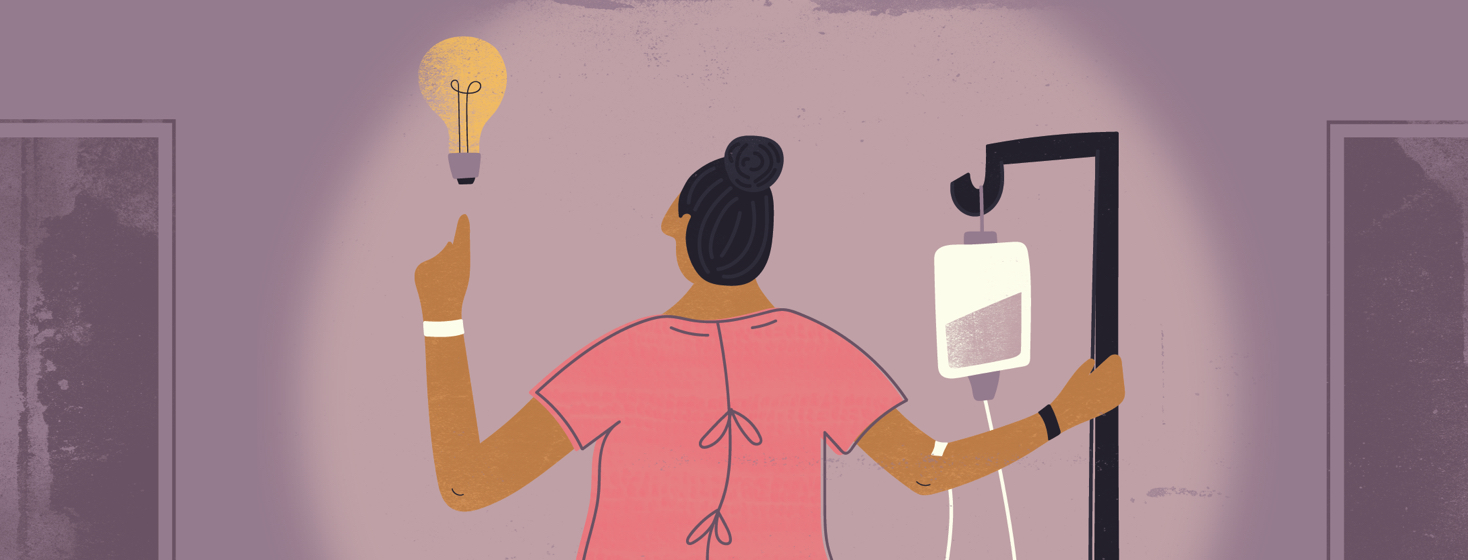My Eureka Moment: Anti-Nausea Meds and RLS
Long ago, in what feels like another lifetime, I had 5 wisdom teeth removed (yes, count 'em: 5) under anesthesia. I was 19. That was the first time I experienced full-body restless legs syndrome (RLS). I'd had RLS since childhood, but nothing like this. I could not sit still for days after.
At the time, I did not know RLS even had a name, so I had no idea that there might be a connection between the medication I had been given during the procedure and the torture I was going through. My entire body was crawling, and none of my usual tricks were working.
Foot surgery, sedation, and restlessness
A few years later, I had minor foot surgery. Again, I woke up to full-body RLS, but this time with a cast up to my knee. While all the other patients lay peacefully nearby, I was desperately trying to climb out of the bed, using every bit of willpower I had not to pull out my own IV and run hobbling out the doors.
I was like a cat in a bag. I had heard tales from other people about how lovely it is waking up after surgery. Calm serenity, a mixture of sedation and pain medication. It sounded heavenly, but definitely not my experience.
The peaceful post-op myth
I had become terrified of ever needing to be hospitalized. The combination of extreme RLS symptoms and being immobile was something I was going to do my best to avoid. But as life goes, we have little choice in that.
The next time I needed sedation, I spoke at length with the anesthesiologist about the side effects I previously had. I felt ridiculous trying to explain to him how bad I knew this was going to be. He was kind and compassionate and assured me that it wouldn't happen this time. He knew what to do.
I remember him coming into the recovery room after surgery as I paced the floor, dragging an IV pole behind me. We made eye contact, and I heard him say, "Oh, dear." It wasn't his fault, but it made me think this peaceful post-op thing people talk about must be a myth.
Making a connection to anti-nausea drugs
About 10 years ago, my adult son was taken to the hospital. Like me, he's one of those people that gets hit hard by what should be a simple bug. They hooked him up to an IV and administered fluids and anti-nausea meds as per usual. He immediately began having full-body RLS symptoms.
He told me this happens to him every time. He only very rarely has RLS, and usually when over-tired. This was a "Eureka!" moment for me.
I knew that anti-nausea medications were also standard with anesthesia. I did some research and discovered that many anti-nausea medications block the dopamine system and can worsen RLS symptoms.
I also found out that there were some newer medications like Zofran (ondansetron) that do not block dopamine pathways and so are less likely to make symptoms worse.1
I memorized the name Zofran. Well, I remembered the Z part, at least.
Hoping for the best, preparing for the worst
Fast forward many years, and I became very ill with a virus. Ugh, I really didn't want to go to the hospital for obvious reasons. As they were hooking up an IV, the nurse told me that one of the medications they would be giving me was Zofran. The "Z" med!
I admit I had mixed feelings about being given any anti-nausea medication. So far, they had not been my friend. Part of me wanted the horrible vomiting to stop, but the other part was terrified.
Paying attention to how drugs affect my RLS
I crossed my fingers and hunkered down, preparing myself for the onslaught of RLS that might be about to happen. But it never did. I've had to take Zofran a few times since then, and it's been a game-changer for me.
I now pay much more attention to how different medications affect my RLS, for better and for worse. And I also think the myth just might be real.

Join the conversation